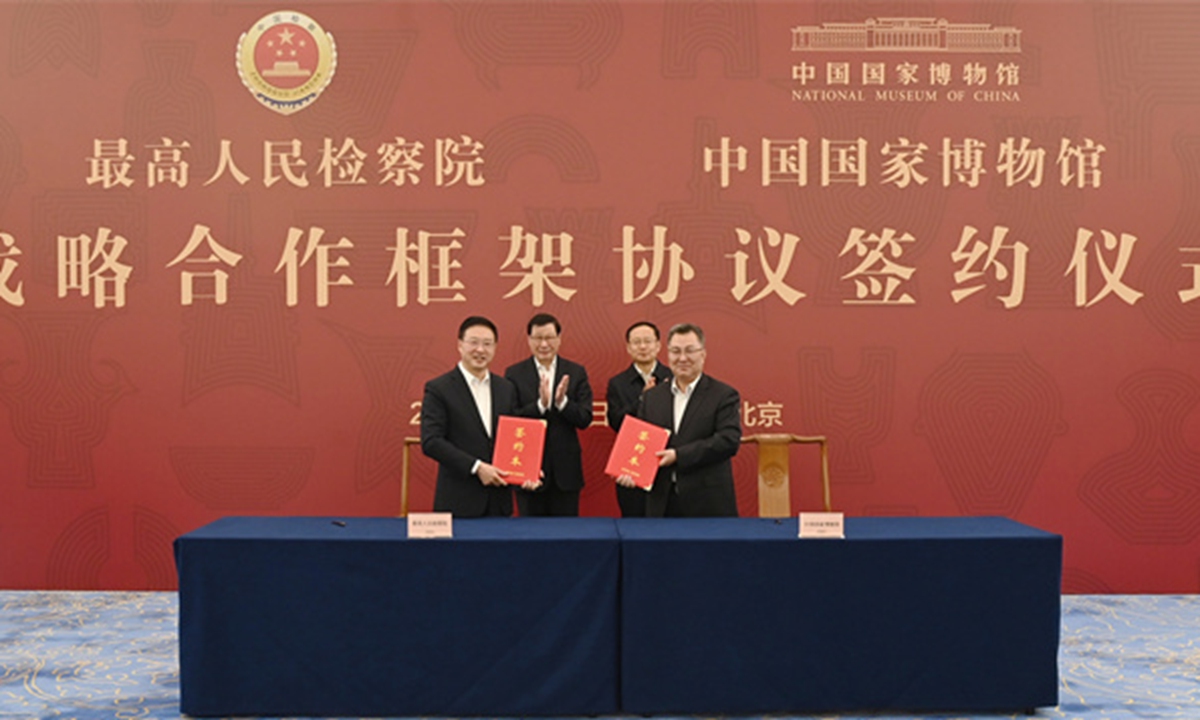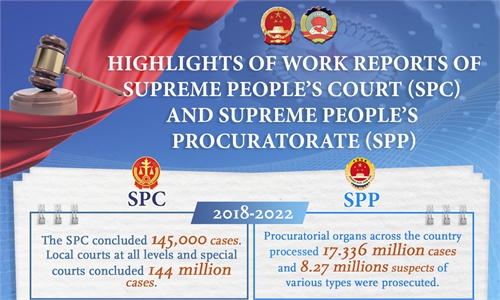ARTS / CULTURE & LEISURE
Top procuratorate vows to contribute to relic protection
Agreement signed with National Museum of China

Photo: Courtesy of the SPP
China's top procuratorate signed an agreement with the country's national museum on Monday to further uphold the rule of law and combat potential crime.
The strategic agreement, inked between the Supreme People's Procuratorate (SPP) and the National Museum of China, will focus on a wide range of cooperative areas, particularly in terms of protecting museum artifacts, organizing joint exhibitions, conducting academic research, and nurturing talent, according to the SPP.
Chief Prosecutor Ying Yong stated during Monday's ceremony that the SPP bears the judicial responsibility of strengthening the protection of cultural relics and heritage.
"It is hoped that this signing ceremony will not only promote further cooperation between the SPP and the National Museum of China but also foster collaboration among procuratorial authorities at all levels and cultural and tourism departments in the fields of artifact law enforcement and criminal justice," noted Ying.
China has been cracking down on cultural heritage crimes in recent years.
In addition to the Cultural Relics Protection Law published in 1982, which has been revised five times, multiple organizations have been cooperating to combat these crimes.
In October 2023, the SPP made public criminal cases related to combating criminal activities concerning cultural relics in cooperation with the National Cultural Heritage Administration (NCHA). According to the SPP, its organs across the country handled 11,402 lawsuits of public interest concerning cultural relics and cultural heritage protection from January 2022 to September 2023.
A notable example is the illegal reselling of 41 bronze artifacts, including an extremely precious bronze mirror adorned with wild animals and grape motifs, representing craftsmanship during the Tang Dynasty (618-907).
A total of 16 people were arrested and it was found that the artifacts had been sold for nearly 10 million yuan ($1.38 million).
Another case spanning from 2012 to 2016 saw the defendant surnamed Wang purchase dozens of bronze artifacts for reselling from a criminal group that conducted illegal activities within the protected area of the Yinxu Ruins.
A total of 37 bronze relics were confiscated, among which two were categorized as second-class relics.
Wang was convicted of the crime of trafficking in cultural relics and was sentenced to six years in prison, along with a fine of 200,000 yuan.
Chinese police solved over 1,070 cases involving the illegal excavation, theft, and selling of cultural relics in the first 11 months of 2023, according to a statement issued by the Ministry of Public Security.
The NCHA and the ministry have been collaborating to establish a long-term system for preventing and prosecuting these types of offenses.

